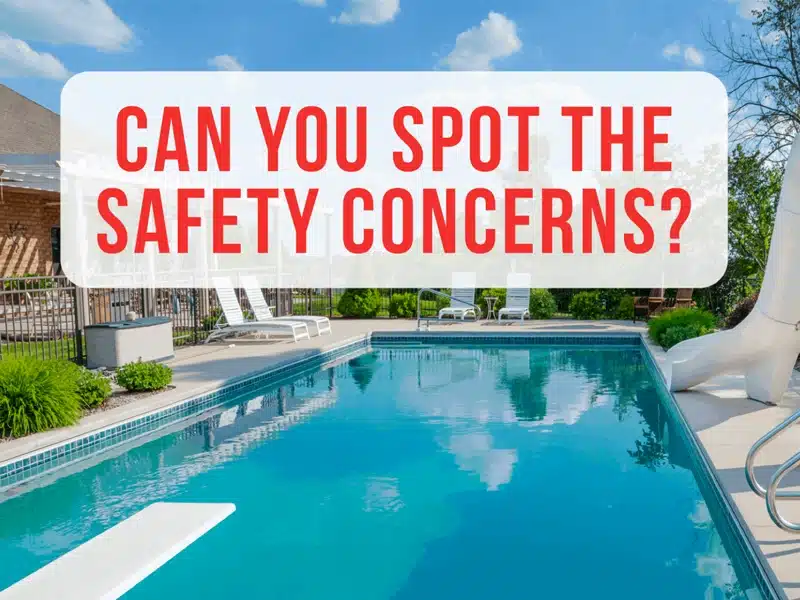Updated Airbnb Laws and Regulations in Colorado
As popular tourist cities in Colorado continue to receive an influx of visitors, the need for short-term rentals continues to grow. Because of this, various municipalities within Colorado are making strides to further regulate Airbnb short-term rentals. Updates to insurance requirements, licensing fees, and minimum stay policies can be found below.
If you have questions about short-term rentals in Colorado, contact Proper Insurance. Our agents are experts in the vacation rental industry in your area. Call 888-631-6680 today.
Most hosts unknowingly have the wrong insurance for short-term renting—don’t wait until a claim to discover your coverage won’t respond! Schedule a quick 15-minute review to verify your protection and gain peace of mind for your property, liability, and business income.
- Arvada, Colorado
- Boulder, Colorado
- Broomfield, Colorado
- Clear Creek County, Colorado
- Denver, Colorado, Airbnb Laws
- Georgetown, Colorado
- Grand County, Colorado
- Lafayette, Colorado
- Leadville, Colorado
- Longmont, Colorado Airbnb Regulations
- Salida, Colorado
- Summit County, Colorado
- Vail, Colorado
- Verify Your Short-Term Rental Insurance Today

Arvada, Colorado
Changes Legality of Short-Term Rentals
There have been a few big changes to Airbnb laws and regulations since the October 2020 ordinance passed in Arvada allowing short-term rental properties. As the market in Arvada quickly expanded after the passing of the ordinance, the City determined further regulations were necessary.
Beginning in August, requirements for Airbnb properties include the following:
- Hosts are required to secure a short-term rental permit prior to listing their property
- Hosts can rent no more than three Airbnb properties in the city at any given time
- Hosts can rent their Airbnb for no more than 240 nights of the year
- Hosts may be required to provide a notarized document confirming these items
The City hopes new regulations will keep hosts from maneuvering the system and listing and licensing more than three properties under different LLCs. Essentially, they hope to maintain a stable housing market for families looking for a place to settle down. While regulations are no surprise, the requirements can vary widely city-to-city.
Boulder, Colorado
Approves New Two-Day Minimum Stay Requirement
Boulder unanimously approved new short-term rental Airbnb laws and regulations in 2020 specifically affecting hosts who rent for more than 60 days per year. These frequent rentals are prohibited in dense neighborhoods made up of primary residence homes. In addition, properties that are rented for less than 60 days per year are limited to 2-night minimum bookings.
The following Airbnb Laws and Regulations are Currently Enforced in Boulder:
- Hosts must reside at the rental property for more than one-half of the year, otherwise known as the owner’s principal residence.
- Hosts must secure a short-term rental license, and the name on the license must be the same as the name on the deed for the property, the owner must be a natural person, trust, or nonprofit organization.
- The owner must verify that the number and location of smoke and carbon monoxide detectors meet the requirements outlined in the application packet.
- The owner must follow the city’s occupancy limits outlined in the application packet.
- Once issued, a Short-Term Rental Annual Affidavit and fee must be submitted by the issuance anniversary date to maintain your Short-Term Rental License. If the Annual Affidavit to certify principal residency is not completed, the license will be revoked.
- The licensing fees for new applications are $130, payable to the City of Boulder.
Broomfield, Colorado
Updates Airbnb Laws and Regulations to Allow Owner-Occupied Short-Term Rentals
The city of Broomfield has passed an ordinance updating the previous Airbnb laws and regulations. As per the municipal code, Chapter 5-39, only principal residencies are allowed to be rented given that the owner has the license to do so. In order to mitigate noise and traffic, there are occupation limits determined by the size of the property being rented. Operators of the rentals need to also follow city laws regarding noise and disturbance of the peace. Short-term rental operators must have sales and lodging tax licenses.
The short-term rental requirements for owner-occupied dwellings include:
- The property owner must reside in the dwelling for more than one-half of the year.
- The property must not be rented out more than 20 days in one month.
- The spouse or domestic partner of a property owner must not have a different address.
- The property owner’s driver’s license, voter registration, or any dependent’s school registration must show the same address.
- The property owner’s mailing address must be listed as the address of the dwelling being rented.
Clear Creek County, Colorado
Debates Owner Occupied Short-Term Rental Regulations
In December 2021, Clear Creek County proposed a revised draft regulation that supports an owner-occupied-only policy for STRs. This means an STR Permit could only be granted to a property owner to rent out their primary residence (or a room within their primary residence). This would also include a grandfathering process for existing STR Permit holders. As of October 2022, no further decisions have been made on this draft. Current Airbnb laws and regulations are as follows:
- Obtain a Life Safety Inspection from the Department of Building Safety
- Obtain a short-term rental permit for $250 annually
- Provide evidence of the availability of connection to a sanitary sewer system or an adequate county-approved onsite wastewater treatment system for the number of occupants.
- A scaled map clearly indicating the following: Lot size, subject parcel boundaries, location of residence, location of appropriate parking spaces, location of any outdoor garbage storage areas, location of snow storage areas, and location of any outdoor cooking/fire facilities.
The County hopes these regulations will encourage hosts to meet and exceed their local health and safety guidelines, ensuring a safe home to welcome guests.
Denver, Colorado, Airbnb Laws
Short-Term Rental Rules in Denver, CO
Denver has implemented comprehensive short-term rental (STR) regulations designed to promote responsible hosting and community well-being. First enacted in 2016 and updated in 2019, these rules ensure hosts comply with stringent safety and licensing standards.
- Steps to Obtain a Short-Term Rental License in Denver: To operate a short-term rental in Denver, hosts must obtain an annual short-term rental license for $100, applicable only to their primary residence. For more information, view Denver’s STR application guide.
- Verify Ownership or Residency: Only primary residences are eligible (see Primary Residence Rule).
- Gather Required Documents: These include a government-issued ID, proof of residence, and a signed affidavit of lawful presence.
- Submit Your Application: Complete the process online via the Denver STR Licensing Portal and pay a $50 application fee. The annual renewal fee is $100.
- Await Approval: Licenses are typically issued within 5-7 business days, although inspections may be required if violations are reported.
- Primary Residence Requirement: Short-term rentals are restricted to the owner’s primary residence. Investment properties or non-owner-occupied units are not eligible. Hosts must provide documentation such as a Colorado driver’s license, voter registration, or utility bills corresponding to the rental address.
- Insurance: Hosts are required to have at least $1 million in liability insurance—like Proper Insurance.
- Occupancy and Zoning: Guest capacity is limited based on Denver’s zoning rules to ensure properties retain their residential character. Properties may host up to two people per bedroom, with an additional two occupants allowed. Short-term rental categories in Denver include:
- Single-Use Rentals allow for only one rental contract at a time, regardless of property size or layout.
- Accessory Dwelling Units (ADUs) may be rented if the owner resides in the primary structure, meaning that a host cannot rent out more than one property at a time since overlapping rentals aren’t allowed. For more details, refer to Denver’s ADU rental policies.
- Safety: Hosts must supply properties with smoke detectors and carbon monoxide detectors in common areas, and at least one fire extinguisher is required on the property’s entry level. Hosts must clearly display evacuation routes, the property’s address, and 24/7 contact information for emergencies.
- Point of Contact: A local contact person must be designated in case of emergencies when the host is unavailable.
- Noise and Trash Regulations: Denver strictly enforces quiet hours to maintain neighborhood peace, with quiet hours being from 10 p.m. to 7 a.m. on weekdays, and 10 p.m. to 8 a.m. on weekends. Hosts must provide instructions for proper disposal and ensure timely removal to avoid complaints. Review Denver’s Solid Waste Guidelines. Excessive noise or improper trash removal can result in warnings, fines, or license revocation. Hosts must manage waste responsibly and promptly address guest-related disturbances. For tips on compliance, view the short-term rentals rules in Denver.
- Taxes and Penalties: A Lodger’s Tax of 10.75% is required on all short-term rental stays, and an additional 4.81% Sales Tax applies, with some exemptions. Non-compliance, including unlicensed rentals or non-primary residency use, may lead to fines of up to $999 per incident or suspension of the STR license. For comprehensive tax information, visit Denver’s Tax Compliance Guidance.
- More information: For more information or to apply for a license, visit Denver’s Short-Term Rental Portal.
Georgetown, Colorado
New Ordinance Means Tighter Restrictions
As of July 1st, 2024, a new ordinance was implemented creating new regulations for short-term rentals in Georgetown, CO. To stay up to date please visit Georgetown’s website, Ordinance No. 1 and Ordinance No. 4.
The following regulations are in place:
- Ownership Period: Homes must be owned for two years before applying for a short-term rental permit.
- Taxes: Owners are responsible and required to collect and remit lodging and sales taxes.
- Trash: No trash shall be left outside the unit unless it is in town-approved containers.
- Monthly Reporting: Each owner of the short-term rental must file a report within 20 days of the preceding month on a form provided by the town with the following:
- How many nights the property was rented for as a short-term rental.
- Identify where the bookings came from, whether online or third party, and include the number of nights booked for each.
- Total charges received for the previous month.
Grand County, Colorado
Updates Requirements and Requires Liability Insurance
Grand County passed updated Airbnb laws and regulations on September 21st, 2021. The county organized a workgroup that will be diving into the bigger issues related to short-term rentals. One of the first goals was to raise the short-term rental registration compliance to 90% by December 31st, 2021. With the amendments approved, along with a contract update for the service that monitors the county’s short-term rentals for compliance and enforcement, county staff members believe that they will be able to achieve the first goal.
As the county continues to make sure that all short-term rentals are in compliance with the regulations, the county has implemented violations fines as a failure to comply with the provisions. It’s important to stay informed on the current regulations in place to avoid any violations and fines to pay.
The county has also changed the application requirements for short-term rental permits:
- Sales Tax License: The property owner or property manager shall provide a current sales tax license for the short-term rental issued by the Colorado Dept. Of Revenue and shall be responsible for remitting County sales tax and lodging tax.
- Local 24-Hour Contact: Each short-term rental shall have a primary and secondary person responsible for managing the short-term rental during any period it is occupied and be able to respond within one hour or less.
- Occupancy: The maximum occupancy of any short-term rental shall be provided in the application. No property may be advertised or rented for use by more people than the maximum occupancy advertised.
- Access and Parking: Adequate driveway access and parking shall be provided in compliance with section 14.4.
- Garbage: The short-term rental shall have a plan for garbage storage and disposal.
- Safety: The property owner shall equip the dwelling with operable smoke alarms, fire extinguishers, and carbon monoxide alarms.
- Physical Address: The physical address shall be posted on the Property, clearly visible and legible from the street.
Grand County has also updated the ordinance to include a liability insurance requirement. The requirement for liability insurance states:
- The owner shall maintain appropriate liability insurance for the short-term rental.
- Owner further warrants and agrees to compensate Grand County for any expense incurred in the defense of any lawsuit or other type of action which may be brought against said County as a result of said Owner’s operation of this use.
- Grand County assumes no responsibility for the operation of the site and the Owner covenants and agrees to hold Grand County harmless for any injury or damage which may occur, of whatever type or nature, as the result of the operation of the Short-Term Rental.
The primary reason for an insurance requirement is to ensure that short-term rental owners are properly protected from injuries or property damage. One of the biggest areas of risk exposure in the short-term rental industry is liability. Liability risk applies any time you open your door to paying guests. If anything happens to your guests during their stay, whether it’s a slip in the shower or a fire in the suite, the owner becomes liable.
When deciding what insurance you need, it’s important to keep in mind that you are operating a business and need a policy that will still cover you in situations related to business activity. A normal homeowner’s policy would not provide you with coverage if something were to happen at your short-term rental. All homeowner’s policies carry a ‘business activity exclusion’, and as a vacation rental operator, you are running a business. The second you mention business activity while trying to make a claim with your homeowner’s policy, you will be denied and left to pay out of pocket. Therefore, it’s so important to ensure that your insurance company understands that you’re operating a business and the policy is tailored towards vacation rentals. At Proper, we have designed a custom-penned policy that’s dedicated to short-term rentals and will be there for you if an issue arises.
Lafayette, Colorado
Updated Regulations as of Sept. 5, 2023
New short-term rental (STR) regulations were approved on Sept. 5, 2023, to address the local housing supply shortage. Although the city recognizes the benefits of STRs in the community, they learned that the rentals were averaging 93 nights a year occupied, so to help mitigate the issues that arose from STRs, the county has implemented regulations. The updated regulations can be found on The City Lafayette Website.
The current regulations are in place:
- Zoning: STRs are allowed in residential areas as long as it is the primary use of the dwelling. They are not allowed in Industrial, Development or Public zoning districts.
- Taxes: Starting January 1, 2024, each STR is required to obtain a Sales and Use Tax License which is valid for 2 years.
- Accessory Dwelling Units: On properties with both a single-family home and an accessory dwelling unit (ADU), short-term rentals are allowed in either unit, but the owner cannot live full-time in the accessory unit while renting out the main home full-time as a short-term rental.
- Point of Contact: Must provide a point of contact who can respond to calls 24/7 and is able to respond in person.
- Occupancy: The maximum number of people allowed is two people per bedroom plus two additional people.
Leadville, Colorado
Insurance Requirements for Short-Term Rentals
With a small-town feel and access to a variety of outdoor activities, Leadville is quickly becoming a top spot to visit in Colorado. Leadville is also one of many cities in the state to implement Airbnb short-term rental laws and regulations. The STR season runs from May 1st -to April 30th and an annual license is required. A license is conducted completely online with the platform MuniRevs. In order to have a license, you must first email to see if one is available in the city of Leadville. Aside from the change in licensing, the city also requires conditional use permits, fire and safety checks, and insurance.
Hosts are required to comply with the Leadville Airbnb rules and regulations as passed in 2021:
- The name, address, and other contact information of the owner of the short-term rental along with the full property address of the rental property.
- Tax requirements such as:
- A copy of a current and valid State sales tax license and a current and valid Lake County sales and lodging tax license issued to the owner or local agent for the proposed short-term rental.
- Additionally, proof that all property tax payments for the property on which the proposed short-term rental is located are current.
- All STR license holders and all commercial lodging establishments are required to submit quarterly accommodations tax on their active MuniRevs tax/business account.
- You must remit a report even if you had no bookings for the quarter. You must also collect the state & County sales taxes. Often platforms like Airbnb or VRBO will collect the sales tax and remit it on your behalf.
- Starting on January 1, 2022, the new Accommodation tax of 4.92% (that was voted in on the November 2nd, 2021 ballot) includes the previous lodging tax of 1.92%. This being said, you do not have to remit both.
- The City of Leadville is using the platform MUNIRevs to have lodging establishments remit the 4.92% tax. This tax should not be remitted to the state.
- The City does not have a contract with any third-party booking organizations (such as Airbnb or VRBO), so no accommodations tax will be collected by them.
- An affidavit, on forms provided and approved by the City, signed by the owner attesting that the short-term rental has appropriate safety features.
- Proof of insurance covering the proposed short-term rental unit sufficient to operate a short-term rental.
A fundamental requirement the city has here is proof of insurance “sufficient to operate a short-term rental”. As the short-term rental market continues to grow, homeowner’s insurance simply doesn’t provide sufficient coverage, often having a “business activity exclusion”. This exclusion can blindside short-term rental hosts, so it’s important to be aware of all insurance requirements within the city.
Longmont, Colorado Airbnb Regulations
Longmont, CO, Updates STR Laws and Discusses New Ordinance
The Longmont City Council adopted Airbnb laws and regulations in 2019 governing short-term rentals, including requirements for an annual permit and City inspections to ensure that rentals comply with building occupancy and life safety requirements and don’t create a nuisance for the surrounding neighborhood. These Airbnb laws and regulations were passed after much debate on how to manage short-term rentals.
The following regulations are currently in place in Longmont:
- All short-term rentals in Longmont require a short-term rental permit and a sales and use tax license.
- Existing short-term rentals are not exempt, and unlicensed short-term rentals are subject to code enforcement.
- The occupancy of an entire dwelling being rented is limited to no more than two people per bedroom, plus two additional people. Each bedroom rented must be a legally conforming bedroom under the city code.
- Dwellings with more than five bedrooms rented for short-term rentals require a fire suppression sprinkler system.
- All short-term rental dwelling units in Longmont now must get a city permit and a sales and use tax license, which includes a one-time $25 fee.
- Operating a short-term rental without a permit in violation of the city’s municipal code can result in fines of up to $500 daily.
- Unlicensed short-term rentals will be subject to code enforcement, notices of violation, and shutdowns, officials said.
Longmont residents who own a second, or an investment, dwelling unit can also rent that unit for short terms, subject to occupancy limits and other city requirements. Property owners who do not live in Longmont may not offer the property in Longmont for short-term rentals. Recently in 2021, a new ordinance was proposed in order to add various regulations to the previous legislation. If passed, updates to previous legislation include:
- The city planning director would be given the discretion to require additional documents from the homeowner-applicant.
- The homeowner would have to provide such documents as a valid Colorado driver’s license or a valid Colorado state identification card, and at least two additional documents indicating that either the short-term rental is the applicant’s primary dwelling, or that the short-term rental is a second or investment property belonging to a Longmont resident.
Salida, Colorado
Updates Licensing and Permit Requirements
The Salida City Council of Colorado has been constantly working on adjusting its Airbnb laws and regulations. In November 2021, they approved amendments to the recently updated short-term rental regulations. The newly approved amendments passed on Nov. 16th and will go into effect on Dec. 19th, 2021. Major changes were made to both Chapter 16 and Chapter 6 of the ordinance.
Chapter 16 changes include:
- Refinement of the definition and review procedures for “Bed and breakfast inn”
- Clarification of review procedures for STRs in RMU, C-2, and C-1 zones
- Clarification of posting requirements in STR units
- Language regarding area-specific non-residential caps and waitlist information
- Creation of new parking standards for STRs
- Establishment of a cap on the number of STR licenses permitted in any new development (max. 50 percent for more than two units on the same lot)
Chapter 6 changes include:
- Refinement of the definition and requirements of a STR license “Applicant”
- Clarification of application procedures and eligibility requirements
- Proof of Chaffee County residency is required for new licenses (out-of-County residents with existing licenses are able to renew)
- Potential exceptions for current owners and executed contracts for existing or new units permitted prior to 7/20/2021, provided license applications are filed on or before 6/1/2022
- The Planning Commission recommended establishing a limit of one STR license per individual, including the controlling individual of an LLC, which was approved by the city council. This does not include individuals who already have multiple licenses.
- Establishment of caps on the number of STR licenses permitted in four separate non-residential areas throughout the city.
Furthermore, specific changes were made in Section 6-6-20 and Section 16-4-190 regarding short-term rental regulations, licensing, and permits. The full changes to the Airbnb laws and regulations can be found here, but major changes include:
Licensing:
- All short-term rental units already licensed with the City as of December 19, 2021, the effective date of Ordinance 2021-17, may continue to operate and renew annually regardless of the Chaffee County residency eligibility requirements of this subsection (g) until such time that the property changes ownership, or the person(s) controlling the corporate owner of the property changes, or until such time the short-term rental license is revoked or abandoned pursuant to this Article.
- Furthermore, owners of property purchased, or under valid and executed contract to be purchased, prior to July 20 December 19, 2021, may apply for a short-term rental license regardless of the eligibility requirements of this subsection (g), provided such license application is filed on or before June 1, 2022, and provided that the unit existed or had a valid building permit for construction on or before July 20 December 19, 2021.
- If such a property had a valid building permit for construction on or before July 20 December 19, 2021, and is unable to obtain a Certificate of Occupancy before June 1, 2022, such property owner may apply for an extension, in writing, to the City Administrator, except that if such extension is granted, the short-term rental license shall be filed on or before June 1, 2023.
- A separate short-term license is required for each short-term rental property. The permit shall be issued only to the owner of the short-term rental property.
- No more than one (1) short-term rental permit is permitted per property owner, which for these purposes shall be considered the person controlling a corporate owner.
Summit County, Colorado
Officials Pass Updated Airbnb Laws and Regulations Due to Public Concern
The Summit Board of County Commissioners in Colorado passed new Airbnb laws and regulations to adjust based on concerns expressed by the public. The new regulations now separate unincorporated Summit County, Colorado, into two zones: resort and neighborhood. The updates primarily include licensing changes.
- Short-term rentals in the resort zones now include Copper Mountain, Keystone, Peaks 7 and 8, and Tiger Run. These zones will continue to operate the way they do right now, but licenses will now become resort licenses.
- Neighborhood zones will include the rest of unincorporated county land and will use a tiered system for licensing. All neighborhood zones will have three types of licenses depending on the type and use of the home:
- Type I: This license is for those who rent out their primary residence. The Type 1 license has unlimited annual nightly rentals of a bedroom in the home when the homeowner is present and a maximum of 60 nights per year to rent the entire unit.
- Type II: This license is targeted to second-home owners — though owners can apply for this license for their primary residence, too — and is limited to 135 nights per year.
- Type III: For second-home owners who want an exemption on the nightly limit, this license requires a conditional-use permit and has different terms for single-family homes and multifamily complexes.
The rest of the ordinance can be found here.
Vail, Colorado
Enforces New Short-Term Rental Ordinance in 2023
The town of Vail has agreed to enforce an updated short-term rental ordinance effective January 1, 2023. This ordinance will update previous Airbnb laws and regulations by requiring things such as fire department inspections and insurance requirements.
The current regulations are in place:
- Foundation Safety: Roofs, floors, walls, foundations, ceilings, stairs, handrails, guardrails, doors, porches, all other structural components, and all appurtenances thereto shall be capable of resisting any forces and loads to which they may be normally subjected and shall be kept in sound condition and in good repair.
- Home Safety: Smoke detectors, carbon monoxide detectors, and fire extinguishers shall be installed and operable, and all wood-burning fireplaces and stoves shall be cleaned on an annual basis.
- Liability: An owner shall be liable for any and all violations occurring on the short-term rental; a property management firm shall be jointly and severally liable for any violations occurring on any of its professionally managed short-term rentals in the City.
- Registration fees such as:
- Professionally managed STR providing onsite management services 24 hours per day, 7 days per week: $5
- Professionally managed STR without on-site management services 24 hours per day, 7 days per week: $10
- STR managed by an owner without a professional property management firm: $150
Updates to these previous Airbnb laws and regulations passed in the new ordinance include:
Fire Department Inspections:
- All new registrations will be required to pass an inspection prior to short-term renting. Inspections must be scheduled 60 days prior to applying for a short-term rental license.
- Existing short-term rentals will need to complete and pass an inspection within the first three years of this ordinance’s effective date.
Insurance Requirements:
- Short-term rental properties will need to have an insurance policy with minimum limits of $1,000,000.
- The insurance may be in the form of property liability insurance; commercial liability insurance; or an endorsement of the homeowner’s policy for coverage of short-term renting activities. Insurance provided by online short-term rental platforms does not qualify
- $260 for short-term rental properties without 24/7 on-site management.
- $50 for short-term rental properties with 24/7 on-site management.
Exterior Signage Requirements:
- All short-term rentals without 24/7 on-site management services will be required to post a copy of their license visible from the exterior of the unit by passersby.
- The license will show the following: the property is a short-term rental, the local representative’s contact information, and the Town’s complaint hotline phone number.
Verify Your Short-Term Rental Insurance Today
Interested in a policy to protect you and your business from liability and damage claims? Proper Insurance is the nation’s leading short-term rental insurance provider, protecting homes in all 50 states and replacing inadequate Homeowners/Landlord policies.
Proper’s comprehensive coverage meets or exceeds standard short-term rental requirements with $1M Commercial Liability (CGL) and unmatched protection for your property and revenue. Additional custom coverages include guest-caused theft/damage, amenity liability (bikes, kayaks, hot tub, etc.), bed bugs, fleas, squatters, and more.
Please note: The information provided is intended as a guide and may not be comprehensive or current. Regulations may change and could vary by area or situation. Always consult local authorities or a legal professional to ensure you have the most accurate information for your short-term rental property.



